Why this Australian woman is speaking for her husband
An Australian woman has revealed the horrifying moment she found her husband “growling” in pain and the devastating reason he mistakenly thought he was “insane or mad”.
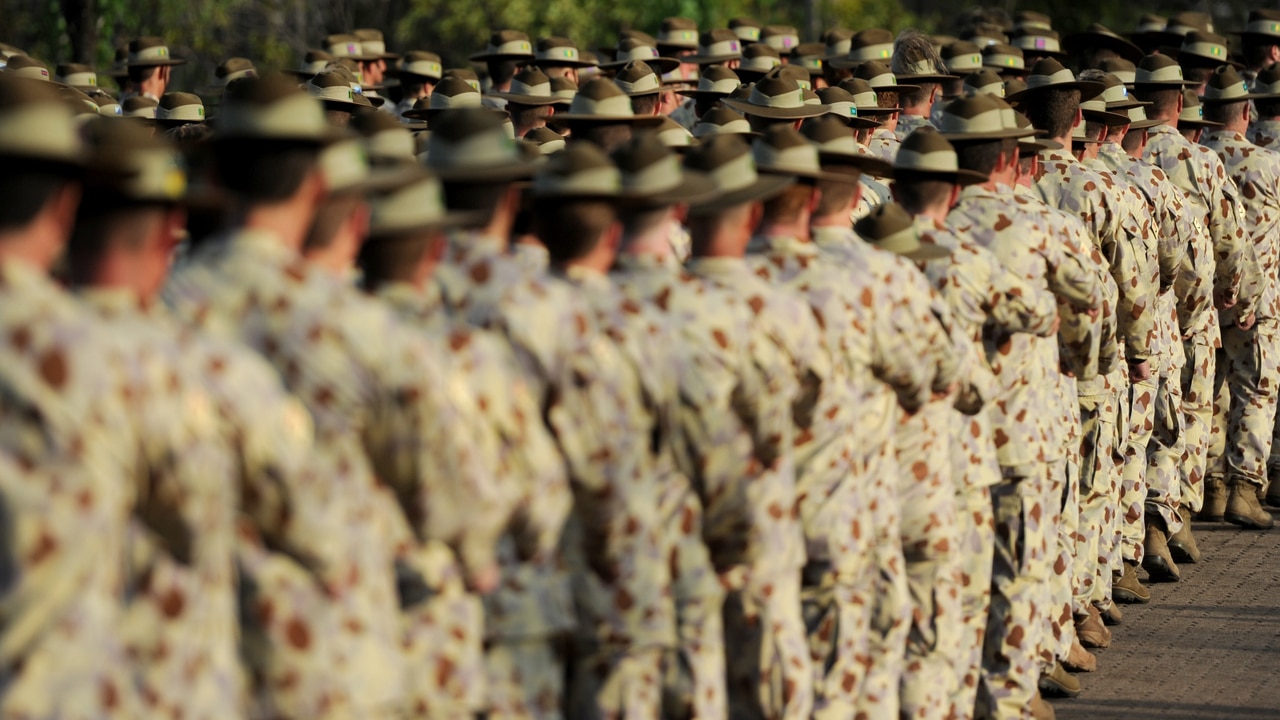
A widow is demanding answers after her army veteran husband suffered for more than 20 years after he served.
Alison Whitfield met the man who would become her husband – Dave — on Facebook. Their marriage was perfect but her husband — a veteran — suffered for years from psychological torment before taking his own life.
Now, his wife is fighting for other veterans like him.
The couple met in 2015 when Alison moved to Brisbane from Victoria. Her 25-year marriage had just ended.
“He was a friend of somebody I had on my friends list on Facebook, so that’s how we got talking,” Mrs Whitfield told news.com.au.

Immediately she was drawn to Mr Whitfield’s “out there” personality. She said nothing was routine. Everything was exciting. It was a world away from what she had known in her first marriage.
“I knew him for nearly two years before we got together,” she said.
One day Mr Whitfield rang her and said he was having a bad day. So she went to see him.
“It really shocked me. He was sitting in the chair and he was just rocking backwards and forwards,” Mrs Whitfield said.
“He was more or less growling.”
He said he was in a lot of pain.
She found it odd. She didn’t know what had triggered it or why. Neither did Mr Whitfield. It was only after they started dating and spent more time together that she realised how “bad” his mental state had become.
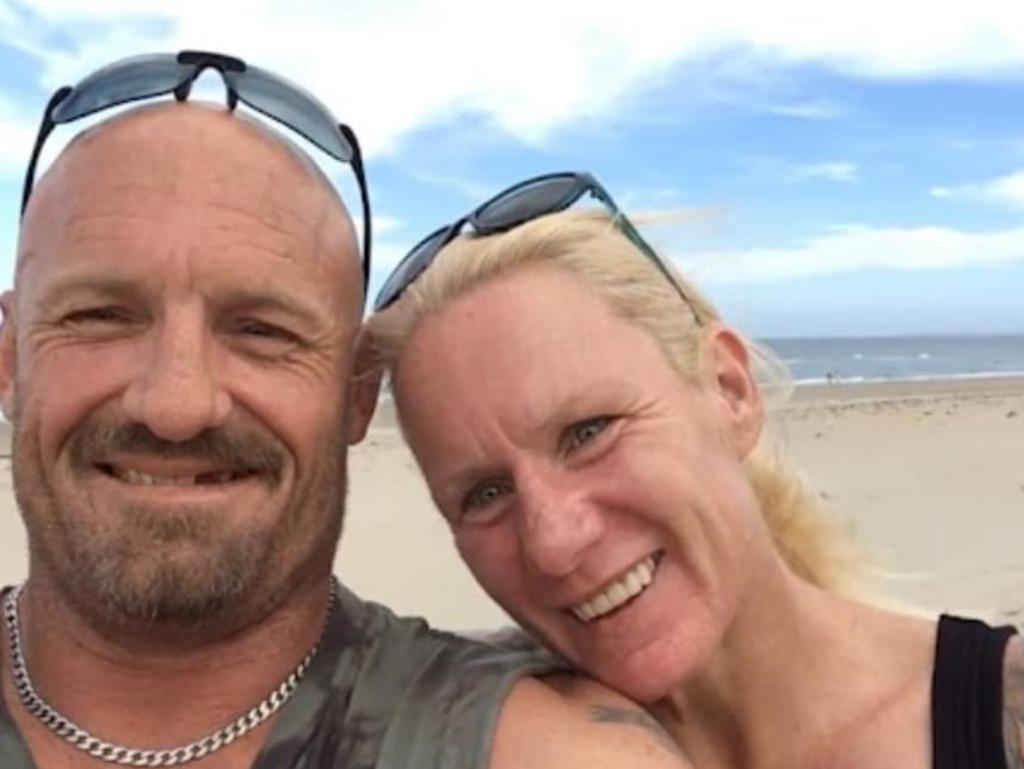
Where it all went wrong
Mr Whitfield served as a medic in East Timor. He was discharged in 2004. All he was given was $125 and a list of homeless shelters. Mr Whitfield didn’t talk about the time he served.
Worried about him, Mrs Whitfield joined Facebook groups for other veterans and their families. In 2017 there was a post about a woman who had taken her life. The post listed the symptoms.
The mother-of-four’s heart broke. As Mrs Whitfield wrote a comment, she watched Mr Whitfield have an episode. It was all because he couldn’t find the TV remote. She shared some of what Mr Whitfield experienced.
Mrs Whitfield was contacted by Major Stuart McCarthy — an advocate for mefloquine-affected veterans. Mefloquine is a malaria medication that those posted to East Timor were given. It was, as has been widely documented, a medical trial that many veterans felt pressured to take part in. Either take the drug or pack your bags and go home.
He was also given another medication.
Major McCarthy said Mr Whitfield wasn’t having a tantrum. He was suffering from mefloquine toxicity. In 2013 the Food and Drug Administration in the US put a new safety alert on the medication. It discussed psychiatric side effects. This included anxiety, paranoia, depression and delusions. In Australia the Repatriation Medical Authority stated there was “insufficient sound medical-scientific evidence” that exposure to mefloquine caused acquired brain injury.
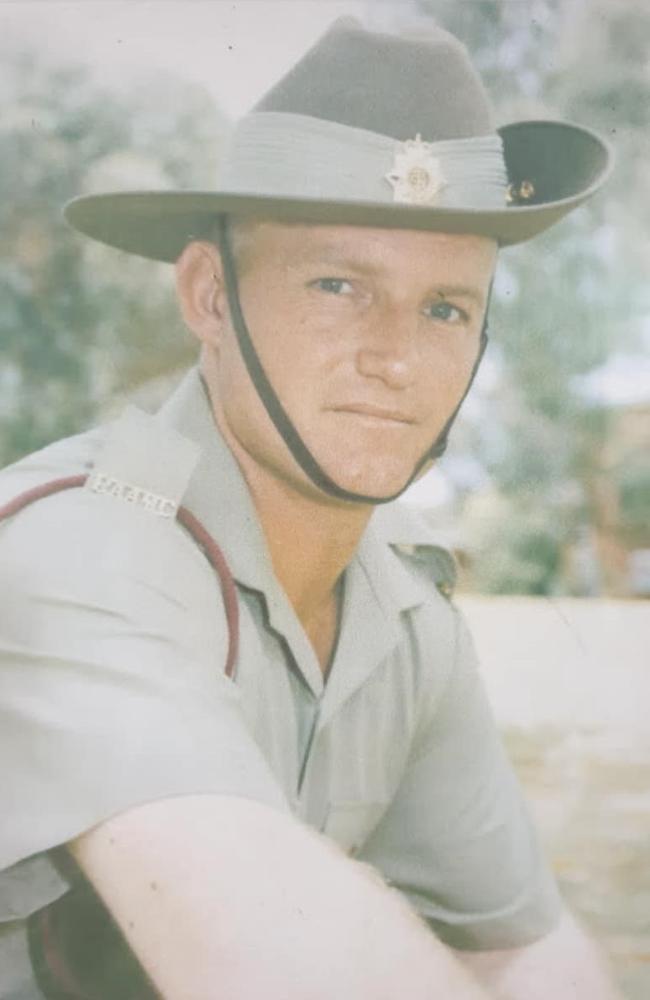
This was reviewed in 2018. The decision was reiterated at the time.
The Department of Veterans Affairs doesn’t accept claims for chemically-acquired brain injury caused by mefloquine, tafenoquine or primaquine.
However, the DVA considers 15 conditions that have causal factors, including exposures to quinoline drugs, that they do provide assistance with.
“Dave always thought he was insane or mad. But then we realised why,” she said.
Mr Whitfield also blamed himself. As a medic he handed out the drug to others.
“I fell in love with Dave. But I also thought I was God and could help him,” Mrs Whitfield said.
“I don’t and never have agreed with people doing the wrong thing and not trying to right it.
“If you’ve done the wrong thing, own it.”
Mrs Whitfield felt as though she was being brushed off by the DVA when she took her husband’s case to them. She felt as though her husband wasn’t being helped. The more she got her back up, the more they were “pushed under the rug”.
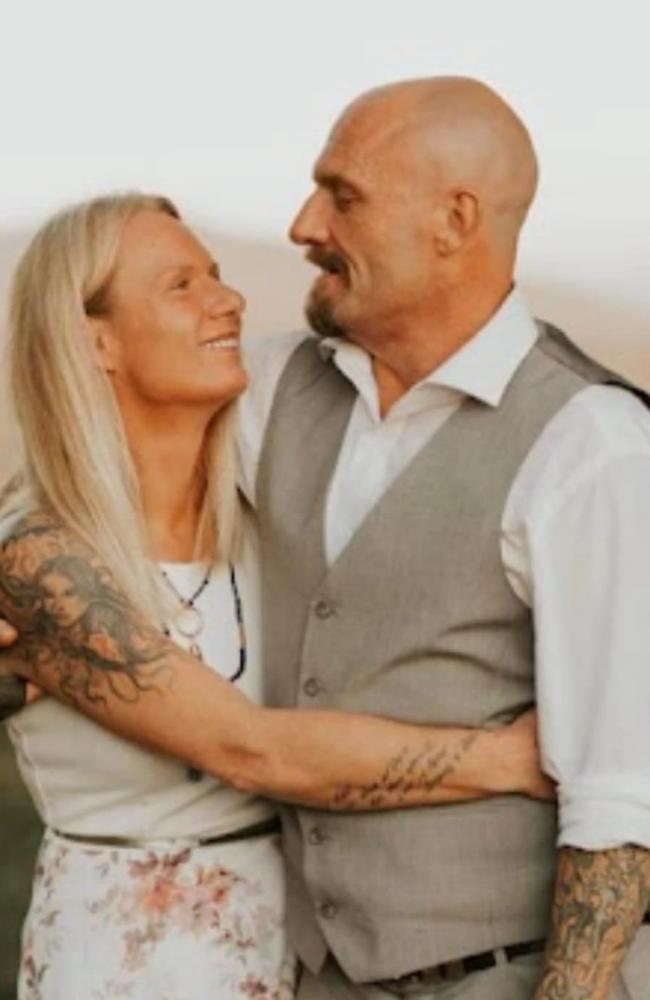
So, she posted on social media. A psychiatrist’s assistant saw the post and bumped Mr Whitfield to the front of the queue.
The doctor even offered to fork out the money for them to see him. Mr Whitfield was under his care for a while.
“Every bit of help that I managed to get him was there and then. But there was no maintenance afterwards. He needed something ongoing,” she said.
“So when his episode would happen again, I’d have to go through the whole rigmarole again.”
Frustrated beyond belief, Mrs Whitfield called the DVA “useless”. She got an email saying she needed to improve how she spoke to staff. She was told if she didn’t, DVA contact would be restricted. The next time she rang DVA she got a message saying “calls from this number are restricted from contacting DVA”.
Mr Whitfield tried to take his own life two days later.
On another occasion, Mr Whitfield went into a meltdown and went missing for three days. He was forced to undergo psychiatric treatment but saw it as him being locked up.
On top of this, the couple faced endless paperwork, mountains of bills and being given different answers on the same issue. This included funeral coverage and compensation. She felt like all the DVA did was make Mr Whitfield’s pension payments. But he needed much more help than that.
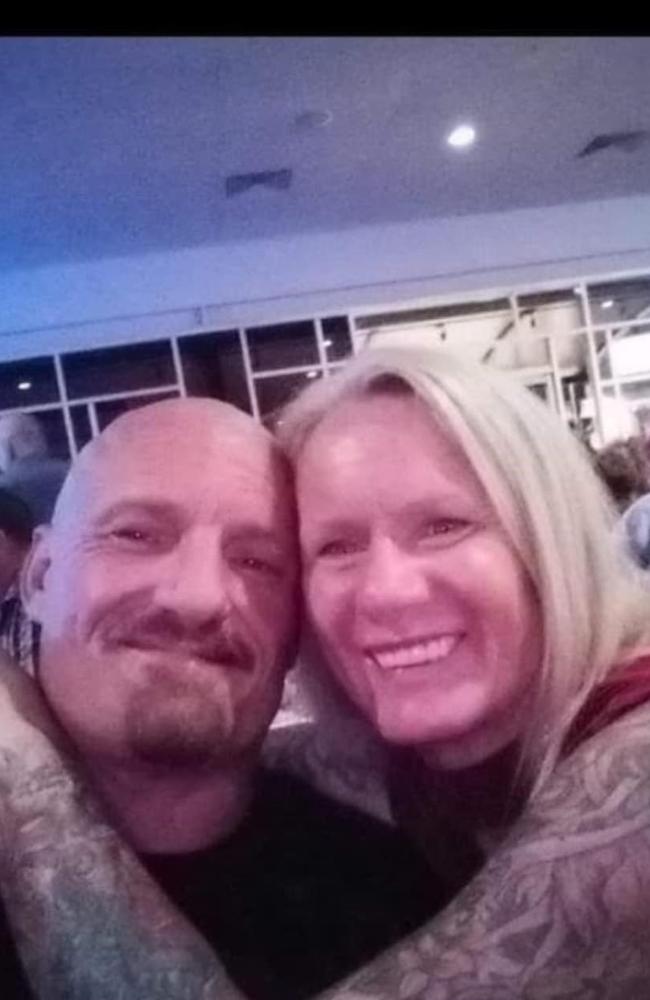
Heartbreaking TV appearance before death
The couple appeared on ABC’s Q&A in March last year. In the segment Mr Whitfield revealed he’d tried to take his life more than 30 times.
The couple invited Matt Keogh, Minister for Veterans’ Affairs, to their home. Mr Keogh was there for two hours, they said. Major McCarthy was also present. He gave a recommendation to Mr Keogh he’d been making to various government bodies since 2015. He said a brain injury program needed to be established.
Mrs Whitfield is frustrated that the government has never acknowledged the link between mefloquine and suicide. She said they won’t ever do it. Mr and Mrs Whitfield gave evidence at the Royal Commission. Recommendation 61 was the establishment of a brain injury program.
Before the report from the Royal Commission was released, Mr Whitfield took his own life.
“At first, after he died, I thought maybe I should have just kept my mouth shut,” she said.
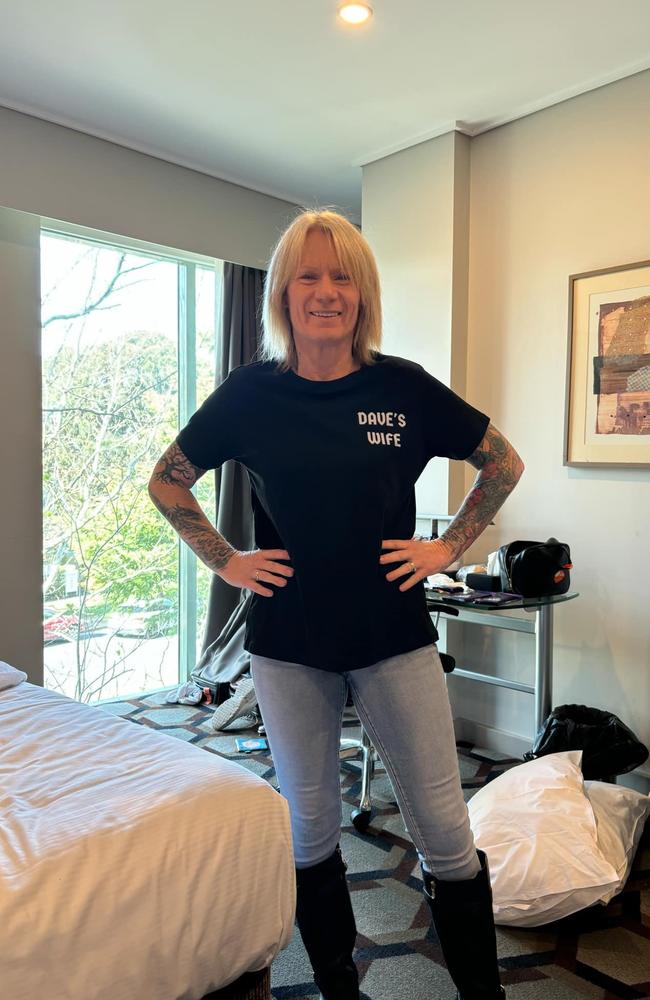
“But, if I’d kept my mouth shut it would have happened earlier.”
Mrs Whitfield saw Mr Keogh one more time. She demanded to know why she no longer had a husband.
A spokesperson from the Department of Veteran’s Affairs was “deeply saddened” by the news of Mr Whitfield’s death.
“We acknowledge the service he provided to our nation,” the spokesperson told news.com.au.
“The death of any veteran is a tragedy and the loss of a current or former Australian Defence Force member is deeply felt by the entire Defence and veteran community.
“DVA provided support to Mr Whitfield over a number of years.
“Veterans with one-day of full time military service can access free mental health care for life, with no need for the condition to be linked to their service.”
We urge any veteran who may be struggling to reach out for help, there is support available.
Open Arms – Veterans & Families Counselling provides free, military aware counselling to veterans and their families. Open Arms is available 24/7, 365 days a year, on 1800 011 046.






